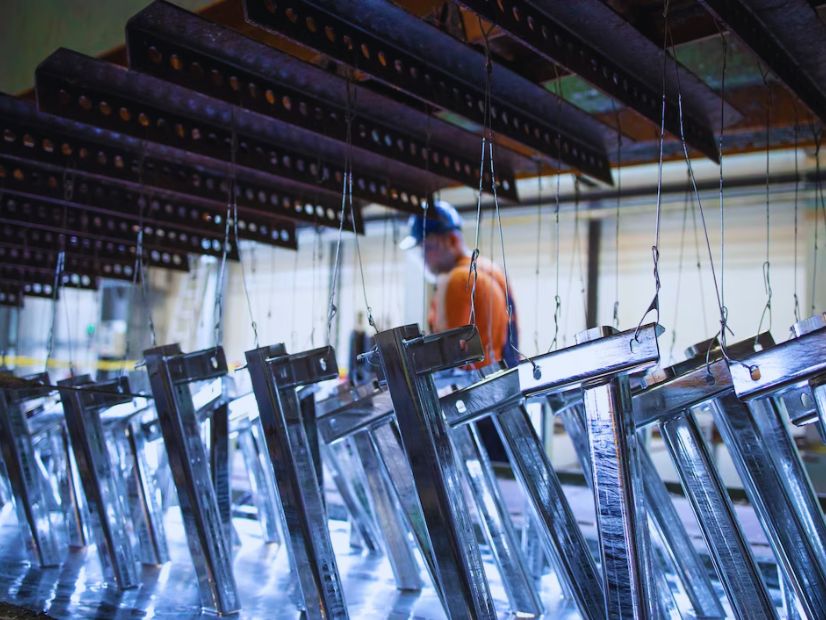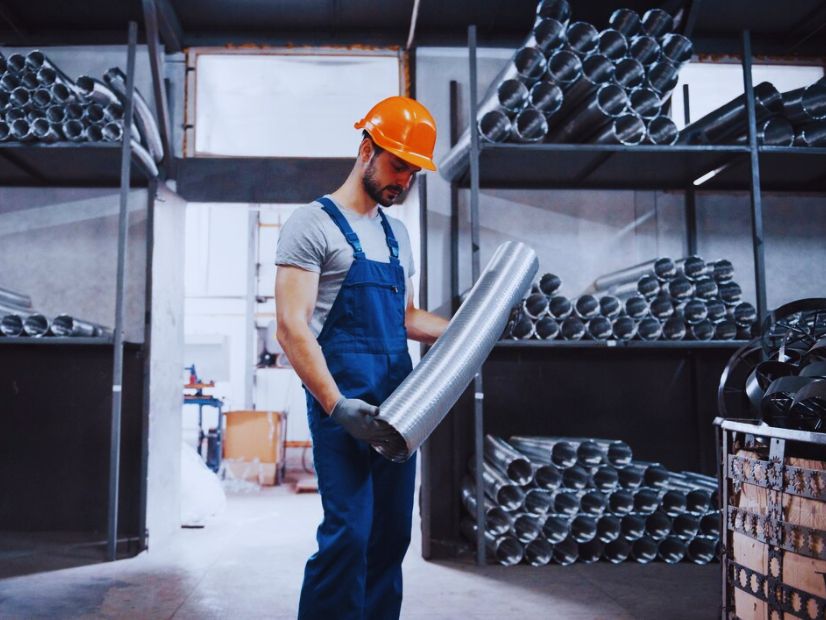Steel quite literally forms the backbone of construction, manufacturing, and large-scale infrastructure projects, and the quality of the steel you use can make or break the build. Durability, safety, and long-term reliability are guaranteed with the use of high-quality steel, making it essential to source the materials from a trusted steel supplier in Melbourne.
At Sutton Steel, we’ve been provided high-quality steel for all sorts of construction projects, and over the years we’ve learned quite a bit about finding and producing high-quality steel. Thus, based on our experience, we’d like to share with you some factors you should consider when looking for high-quality steel.
What are the Types of Steel?

In simple terms, steel is an iron alloy made by a combination of iron (Fe) and carbon (C). However, the variations in the iron and carbon concentrations as well as the introduction of additional elements have given rise to various types of steel that all have different chemical compositions, physical properties, and usage.
The four most common types of steel are:
- Carbon Steels
- Alloy Steels
- Stainless Steels
- Tool Steels
Carbon Steels
Carbon steel is by far the most common type of steel produced in the world and is characterised by its high concentration of carbon. The carbon adds to the steel’s strength, making carbon steels perfect for producing construction materials, tools, and automobile components.
Carbon steel is further classified into three subgroups based on their carbon content. They are:
- Low-grade carbon steel: The carbon content is around 0.3%. They are excellently ductile, weldable, and malleable, making them ideal for producing everyday tools.
- Medium-grade carbon steel: With its 0.3% – 6% carbon content, these offer the perfect balance between strength and flexibility, making them perfect for producing machinery parts and structural components.
- High-grade carbon steel: The carbon content exceeds 0.6%, making them significantly stronger but less ductile. These are commonly used for producing cutting tools and industry-grade components.
Alloy Steels
Alloy steels are developed by combining steel with additional elements such as copper, chromium, nickel, and/or aluminium, etc. These components can be combined to improve the corrosive resistance, ductility, and strength of the steel.
Stainless Steels
Stainless steel is known for its excellent corrosion resistance, which we can attribute to the incorporation of at least 11% of chromium. This is a highly versatile category, being used for producing kitchen utensils, medical devices, and processing machinery.
Tool Steels
The high-strength steels that are categorised as tool steels are often for components and machinery in industries where high wear and tear resistance is required.
What are the Dangers of Low Quality Steel?
As a company that specialises in structural steel welding, we’ve seen firsthand how using low-quality steel can have serious and costly consequences. The bottom line is that structures made and supported using low-quality steel won’t last long, and it will come down sooner rather than later.
The other dangers involved with using low-quality steel include:
- Expedited Rusting and Corrosion
- Poor Compatibility with Welding and Fabrication
- Safety Hazards and Legal Liabilities
- High Long-Term Maintenance & Repair Costs
How Will You Identify High-Quality Steel?
Whether it be a small DIY project or a large-scale construction, knowing that the steel you get is of high quality can put your mind at ease. Here are some things you can do to spot the differences between high and low-quality steel.
Visual Test
Low-quality steel can be damaged easily. Therefore, check the surface for any visible defects, cracks, rust, or imperfections.
Ultrasonic Testing
Using high-frequency sound waves, you can check for any internal cracks and defects in the steel without needing to destroy it.
Supplier Certification
In Australia, steel needs to meet strict quality and manufacturing regulations. You can ask the supplier for certification documents and see whether they have complied with industry standards.
Tensile Strength Test
Depending on the purpose of your build, the steel you use should be strong enough to support the load without bending or breaking. The application of this test depends on the type of steel and the construction said steel will be used for.
Spark Test
Cut into the steel with the help of a grinder. Good quality steel should be homogenous, and thus the spark from the cuts should last from one end to the other.
What are the Identification Criteria When Selecting Steel?
Before the acquisition of the steel, one must weigh all considerations to capture the purchase of quality steel:
- Strength and Hardness: In some applications, more tensile strength is required.
- Resistance to Rust and Corrosion: Should your steel be placed outside, ensure it has some corrosion and rust resistance.
- Weldability and Formability: Some types of steel could be preferred due to these engineering properties.
- Cost: Better qualities cost more; hence, people need to weigh price vs. quality always.
How to Inspect Good Quality Steel?
For those acquiring quality steel, the following checks are:
- Rust or surface flaws inspection: Quality steel should be free from surface defects such as rust, cracks, or any other external blemish.
- Request report on chemical composition: The original supplier can only give a certificate of analysis along with the chemical composition of steel.
- Order for material testing: Some suppliers provide test services such as tensile strength of the steel and other physical properties.
How Can Sutton Steel Help?
We at Sutton Steel are one of Melbourne’s premier service providers, being experts in drafting, installation, onsite welding, plasma cutting, and structural steel fabrication in Melbourne.
Our team of experts brings innovation, expertise, and commitment to quality to all our projects with the help of the latest technology in the industry. Choose Sutton Steel, and you can be sure that your project is in safe and capable hands.
Final Thoughts!
Buying quality steel in Melbourne involves vigilant monitoring of your personalized needs, keen understanding of the type of steel that exists, and selection of a genuine supplier.
By doing research on your choices, testing the steel for strength, and making sure it complies, you will be guaranteed that your project will stand the test of time.
From mild steel fabrication to stainless steel right through to specific stainless steel used for medical applications, Melbourne has no shortage of high-quality suppliers ready to provide your requirements.





























